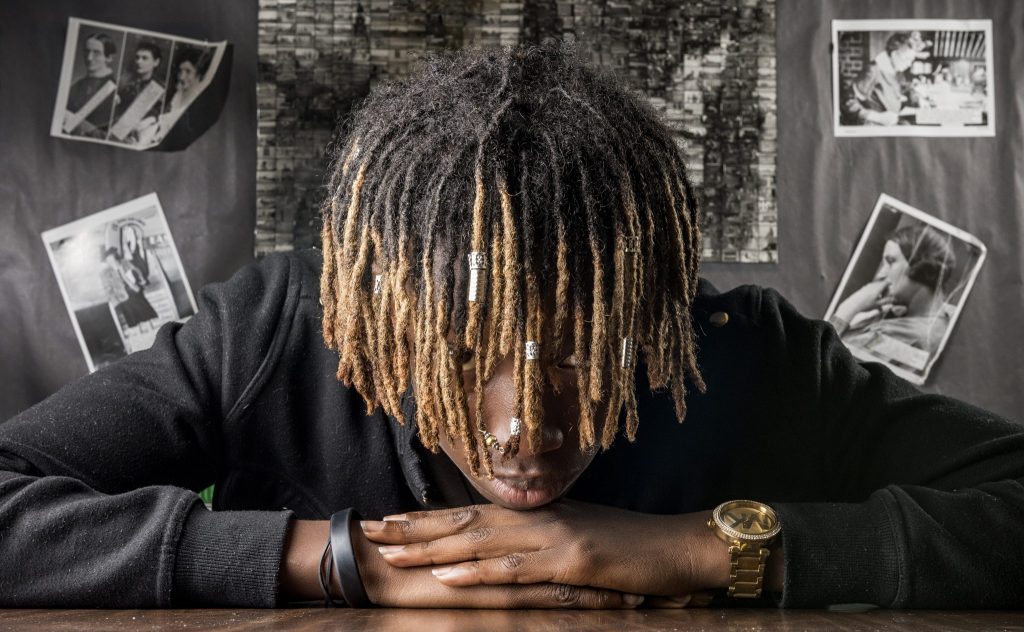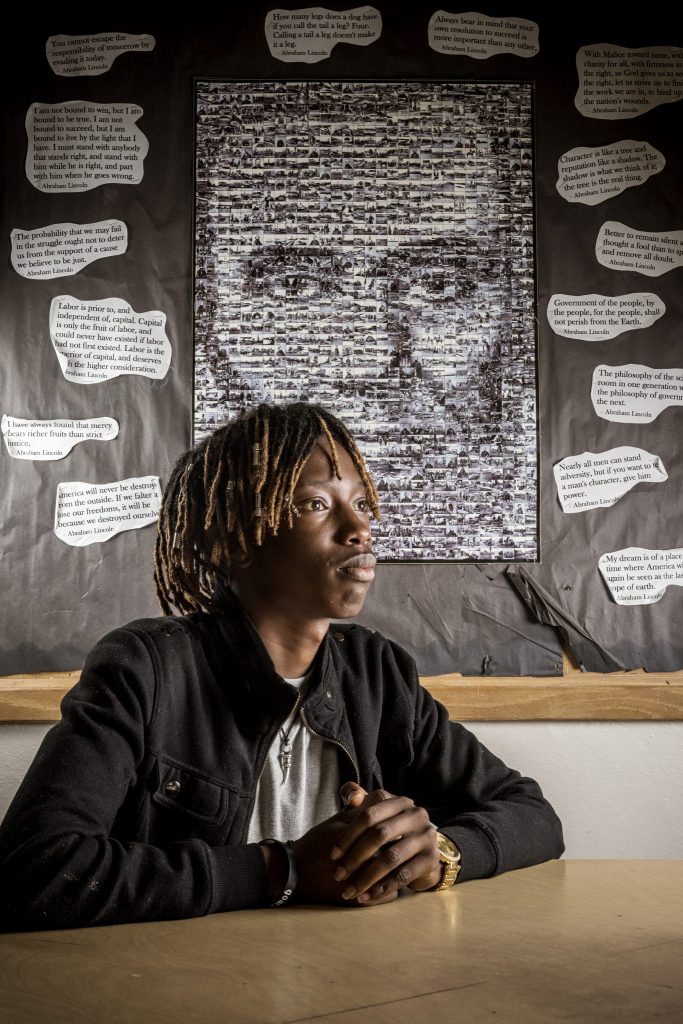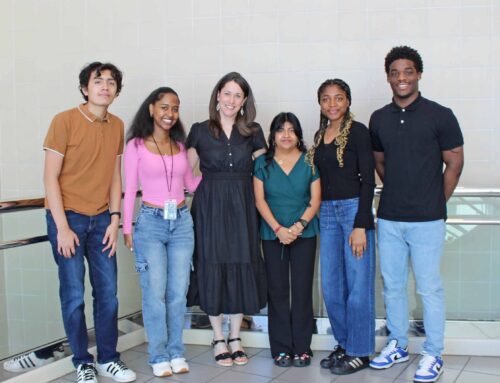Mansour Lam
Return to “Still I rise” homepage
Mansour Lam is an eloquent communicator, although he has yet to realize it.
The wiry, mild-mannered 17-year-old doesn’t need to be verbose to be articulate. His voice has a poetic cadence, and he thoughtfully answers questions in just a few words.
But Mansour, who speaks several languages, doesn’t talk about himself much. He worries his Senegalese accent is difficult to understand. The Lake Highlands High School senior prefers writing more than speaking, he says, because people relate best to others when they can’t see their faces. He excels in his AP classes despite that he enrolled in school for the first time at age 11.
“The fact I wasn’t born here, and I’m doing stuff kids who were born here can’t do, that I’m very proud of,” he says.
Mansour’s quiet demeanor shifts when he describes his family. He is the second youngest of 12 children, several of whom still live at home.
“You can’t get bored,” he says. “It can be frustrating but fun at the same time.”
Even Mansour’s eyes smile as he imitates how his brothers play basketball. They’ve practiced the sport every Saturday for years with little improvement. The Lam siblings only take granny shots, he says, as he haphazardly throws his arms into the air.
“I kind of like that they’re horrible, and I’m good,” Mansour says.
Since they immigrated from Senegal in September 2010, Mansour has relied on his family during the “bad days” — the times it feels as though needles are poking his stomach and his limbs are ripping apart.
Sickle cell anemia has caused lifelong bouts of excruciating and unpredictable pain in Mansour’s arms, legs or chest. He was diagnosed with the red blood cell disorder before he spoke English and could fully understand the disorder’s consequences.
“The fact that I know what it is makes it harder,” he says.
If powerful painkillers like hydrocodone don’t quell the agony, Mansour is hospitalized — sometimes for two to three weeks. His mother won’t leave his bedside, despite his siblings’ offers to stay with him. His father, a devout Muslim, prays until the episode ends.
A bone marrow transplant is the only known cure for the disorder. Mansour hasn’t found a match.
“I’m honestly not worried about it,” he says. “When it comes, we deal with it. That’s all we can do.”
Mansour only confides in his best friend when he’s in pain. She doesn’t treat him differently like he worries others might, he says.
“I just know I’m me. I’m not a bad person. The things I can’t change, I can’t change. There’s no point weeping over it.”
Even though Mansour has missed dozens of days of school, he thrives in the classroom.
“It doesn’t deter him from his sincere belief that his life is going to be great,” AP U.S. history teacher Casey Boland says.
Mansour was accepted into the University of North Texas and plans to have a career as a physical therapist.
“He has that overall rosy positive attitude, without a hint of arrogance. If I were him, I’d be the most arrogant person on the planet,” Boland says.
Mansour’s parents fled war-torn Mauritania, a West African country bordering Senegal, in the 1990s. Children in Senegal aren’t required by law to attend school, so he went to an Islamic school that only taught the Quran instead.
“We didn’t have enough money to buy bread in the mornings for breakfast,” Mansour wrote in an English class essay. “The 11 years that I lived there, I had to go around [to] different houses, asking for rice and milk.”
With little food, his parents applied for visas to enter the United States. Mansour — who dreamt they were in the U.S. before their visas were approved — was excited, until he became sick for the entirety of the eight-hour plane ride, he says.
“I remember praying: ‘This is not what the food is like, because this I cannot get used to,’ ” he says.
The family thought they’d go to Ohio, where their extended family lives, but U.S. Citizenship and Immigration Services brought the family to Dallas. They ushered them into a townhouse near Forest Lane.
“The fridge was filled with anything you can think of,” he says. “That’s not something we were used to. Adapting was a different story.”
Mansour walked into school for the first time without knowing “hi” was a greeting or that uniforms were required.
“I hated the first few months,” he says. “It was the worst. I remember doing a test — everyone circling, bubbling — and I had never seen a Scantron … All eyes are on you. You’re just different. Everybody knows you have no idea what’s going on.”
One of his teachers bought him a winter coat and uniforms. The kindness she showed is, in part, why he gives his phone number to every new student and offers to befriend them.
It took Mansour a few years before he felt at home in Lake Highlands, he says, and he didn’t prioritize education until he became an upperclassmen. He studies for an hour every night before he even begins his homework.
“Now I just focus on my education instead of what I’ll eat for lunch,” he says.







